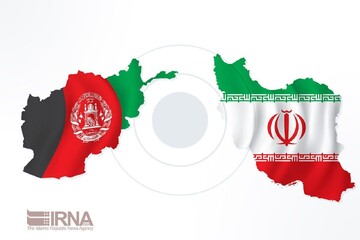In the latest development, Iran’s Foreign Minister Hossein Amirabdollahian on Thursday talked with the Taliban’s Acting Foreign Minister Amir Khan Muttaqi on sharing water rights to Helmand River.
The Iranian foreign minister highlighted the recent precipitations to prevent any pretext, urging the Taliban government not to raise artificial issues to violate Iran’s right to Helmand waters.
Amirabdollahian’s telephone conversation was made following President Ebrahim Raisi’s instructions to push for securing Iran’s share of the waters in a cabinet meeting this week.
In the meeting, Raisi tasked his foreign and energy ministers with following up the case to secure Iran’s rights to Helmand River, highlighting the water shortage the people suffer from in Iran’s southeastern province of Sistan and Baluchestan which has common borders with Afghanistan.
Sharing water rights to Helmand has long been a mater of dispute between Iran and Afghanistan even before the Taliban took over the government in Kabul.
Iran’s Foreign Ministry officially protested Afghanistan in early 2021, as Kabul was constructing Kamal Khan dam, failing to supply Iran’s share of the waters which should be secured in accordance with the 1973 water treaty between Iran and Afghanistan.
The treaty requires Afghanistan to release a monthly average of 22 cubic meters per second of Helmand waters as Iran’s share and an additional monthly average of 4 cubic meters per second as a sign of goodwill and fraternity.
At the time, Iran’s Deputy Ministry of Energy for Water and Wastewater Affairs Ghasem Taghizadeh Khamesi said that Afghanistan should have obtained Iran’s approval to build the dam, as stipulated in the article 5 of the 1973 treaty.
In early 2022, Sistan and Baluchestan Governor-General Hossein Modarres Khiabani said that the dam was discharged by the Taliban officials to supply Iran’s share.
He said that two valves of the dam were opened following good precipitations to supply the Chah Nimeh lakes in southeaster Iran.
The four Chah Nimeh lakes supply the majority of Sistan region’s water needs, but they had lost 75 percent of their water reserves due to draught in recent years, according to Khiabani.
But this time Iran has put more pressure to the Taliban government to implement its commitments, as Foreign Minister Amirabdollahian told Muttaqi that Iran would assess the caretaker government’s commitment to international law and Iran by their response to the issue.
He warned the Taliban official that non-settlement of the dispute over the sharing of water rights to Helmand would impact other spheres of cooperation negatively.
Muttaqi reaffirmed the Taliban’s commitment to secure Iran’s share of Helmand waters and said that they would supply Iran’s share when water was available.
To be more practical, Amirabdollahian offered forming a joint technical team to reroute Helmand Rive so that the people on both sides of the border wouldn’t suffer from water shortage.


Your Comment